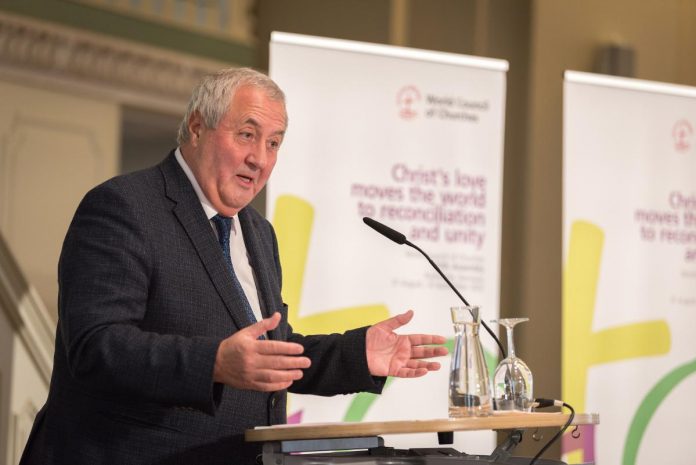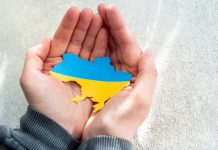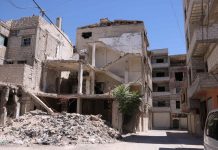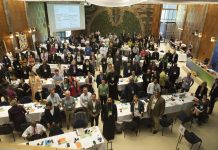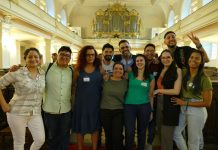The World Council of Churches (WCC) hosted an interface conference on 13 October between the WCC, EKD, German Federal Foreign Office, Trans-Atlantic Network and Berlin-based diplomats to discuss the vital role that the WCC, churches and faith communities around the globe play in advancing people’s health and healing, particularly in the aftermath of the COVID-19 pandemic.
The WCC and its member churches have long been deeply engaged in health issues and in demonstrating the need for complementing scientific and medical aspects to health with faith-based approaches. The conference reinforced the position of the WCC and faith communities around the globe as critical partners in ensuring equal access to healthcare and countering misleading information about vaccine programmes.
The conference is held in the context of preparatory meetings and consultations running up to the 11th WCC Assembly, scheduled from 31 August to 8 September 2022 in Karlsruhe, Germany.
In opening the conference, WCC acting general secretary Rev. Prof. Dr Ioan Sauca reflected on “The Pandemic, the World Council of Churches, and Global Health.”
The pandemic brings us together, even as the virus and its variants run rampant and the enormous task of vaccinating, protecting and aiding the world’s population continues to tax our health and economic systems, Sauca said. “But, I urge you, let it never tax our courage and fortitude!” he said. “We pledge ourselves in solidarity to this campaign for life for all!”
Dr Agnes Abuom, WCC central committee moderator, said that much is being done, but so much remains. “We must acknowledge the special role that religion and religious communities—whether Christian or Jewish, Muslim or Hindu–continue to play in the world,” she said. “I have personally witnessed the dramatic ways in which churches, for example, in Africa and around the world, have stepped up to lead in this pandemic.”
Bishop Petra Bosse-Huber of the Evangelical Church in Germany, a member of the WCC central committee, offered a vision of how the WCC 11th Assembly has the potential to strengthen the role and responsibility of the churches in society. “Especially in a situation in which cohesion and closeness are put to the test by the COVID pandemic, where our vulnerability comes into focus, the assembly can send an important message: only together can we manage to face the challenges of our time,” she said. “Those who merely pursue their own interests cannot build a peaceful and just society.”

Dr Mwai Makoka, WCC programme executive for health and healing, asked some key questions to draw out creative thinking from participants. “What is the role of churches on health and wellness, healing and healthcare in the world?” he asked. “Is this role restricted to church members for whom the churches have an obvious responsibility, or does it extend beyond the Christian community?”
The Minister of State for Europe Dr Michael Roth from the German Federal Foreign Office, welcomed in a video message the WCC 11th Assembly to Germany in 2022.
The 13 October conference was a starting point for a consultation on the future direction of the WCC Health & Healing Programme, to be held from 13-15 October.
This consultation will bring together churches and ecumenical partners to prepare additional paper(s) to accompany the proposal and bylaws for a Commission on Health and Healing. These documents will provide critical starting points for the commission by outlining future direction for the programme, key programmatic priorities and an appropriate organisational structure.



